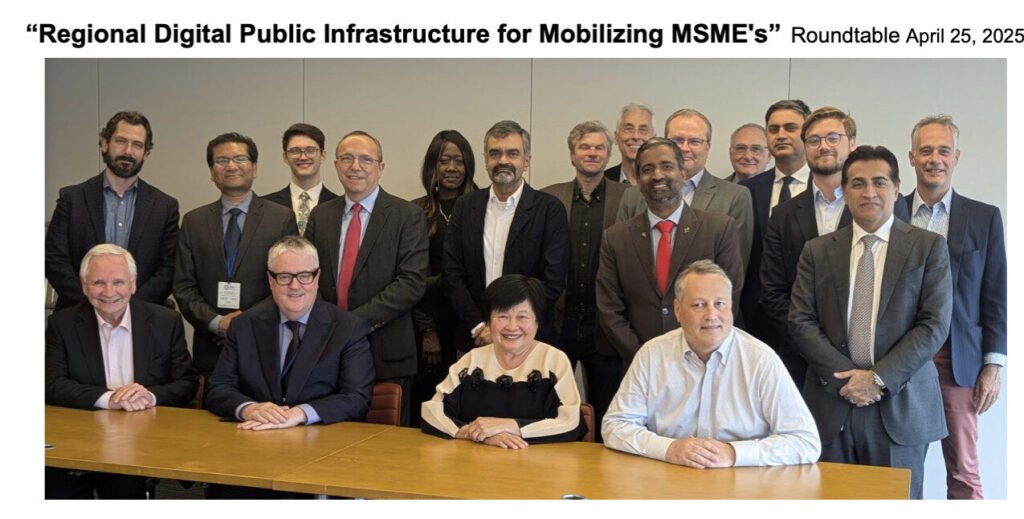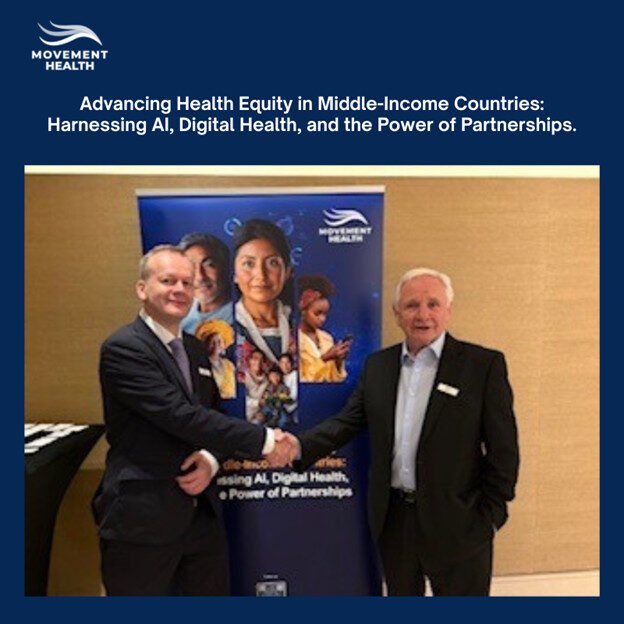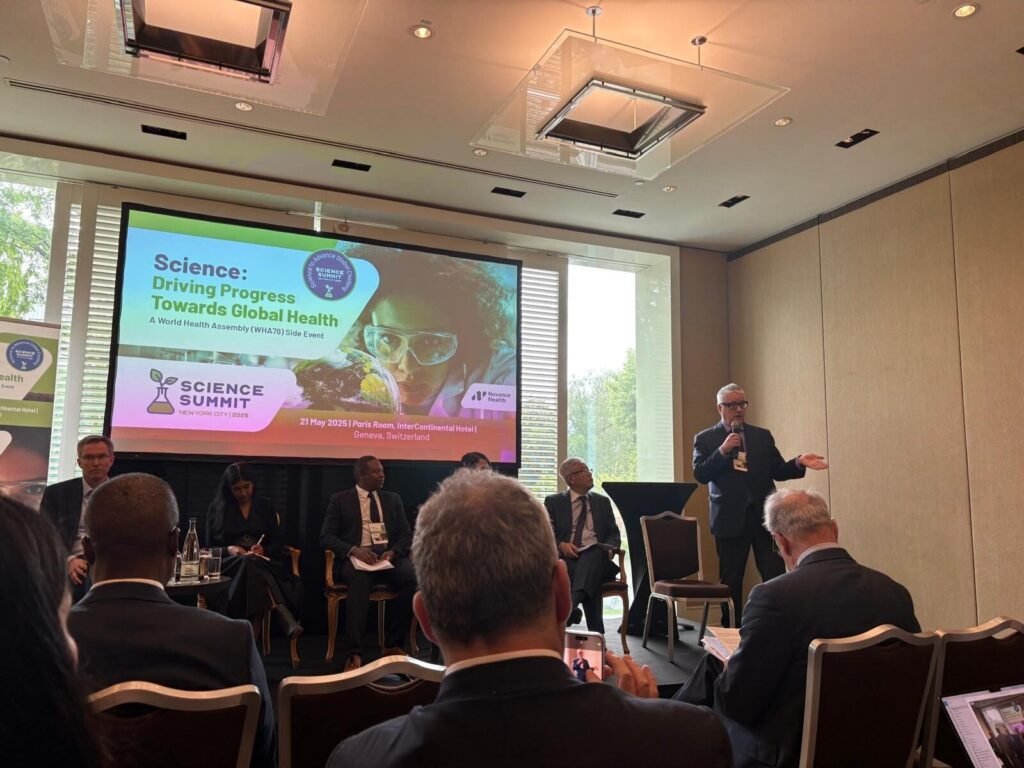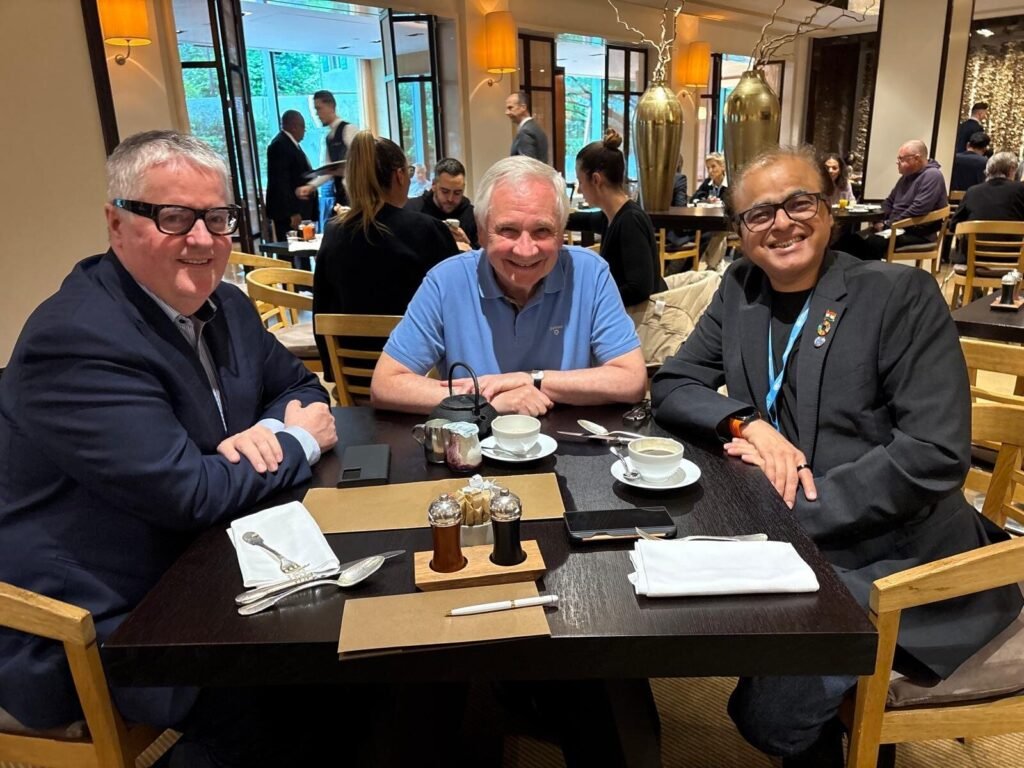The past few weeks have marked an intense period of high-level discussions, collaboration, and critical reflection for our Chair, Brian O’Connor. From Washington D.C. to Geneva, he engaged with global leaders and changemakers committed to shaping the future of global health.
Across various forums, from the World Bank Spring Meetings to Movement Health Foundation sessions and World Health Assembly side events, one message resonated clearly: the era of working in silos must end. Health, science, finance, policy, and the economy must work in unison to address today’s complex global challenges.
Washington D.C. – Hope Beyond the Headlines
At the World Bank Spring Meetings in Washington D.C., Brian O’Connor participated in a series of impactful side discussions alongside fellow Global Health Connector partners, including Dr Amit N. Thakker (Africa Health Business), Ann Mond Johnson (American Telemedicine Association), and Declan Kirrane (ISC). These conversations centred around a bold vision: improving healthcare access for populations worldwide.
The discussions went beyond policy; they reflected a deep willingness to listen to concerns, acknowledge uncertainty, and build a renewed determination to collaborate. There was a shared understanding that outdated approaches no longer serve today’s needs. Cross-sector partnerships are no longer optional; they are essential for systemic progress.

As part of this effort, Brian joined a high-level Roundtable on ASEAN MSME Financing and Digital Public Infrastructure, held during the Spring Meetings in partnership with the UN Science Summit and IEEE. The session included voices from IFC, ADB, UNICC, and ITU, and focused on unlocking the $5 trillion MSME financing gap in Southeast Asia. A key takeaway emerged: the urgent need to build digital public infrastructure that drives financial inclusion from the ground up.
Geneva – Advancing Equity through Innovation
In Geneva, the journey continued at the Movement Health Foundation’s session on Advancing Health Equity in Middle-Income Countries. Digital health, artificial intelligence, and innovative partnerships took centre stage as key enablers of transformation. Meeting digital health advocate Bogi Eliasen in person served as a timely reminder of the power of human connection—an essential ingredient for trust, collaboration, and long-term progress.

Later in the week, Brian participated in the Science Side Event at the 78th World Health Assembly. Speaking on the panel Science and Research: Driving Progress Towards Global Health Goals and Impacts for Patients, he emphasised the urgent need to fund innovations that support both universal health coverage and climate resilience.
Fellow panellists from Africa, Europe, and global research and development institutions underscored a critical truth: science is not a luxury, but a necessity if the global community is to achieve equity and resilience in healthcare.

A Call to Connect
Between official sessions, some of the most meaningful exchanges came through informal conversations with trusted collaborators, including Declan Kirrane, Dr Rajendra Pratap Gupta (Health Parliament, India), and Tobias Silberzahn. These interactions reaffirmed that the role of “Global Health Connector” is not merely a title—it is a call to action.

The path forward requires more than dialogue. It demands active collaboration between sectors, nations, and people. The challenges the world faces are interconnected, and the solutions must be as well.
This is not a time for passive observation. The world is already in the midst of a new global reality—one that demands a fresh approach to investment, collaboration, and impact measurement.
Brian O’Connor has returned from these engagements not with empty optimism, but with focused hope. By aligning health with science, finance, and policy, the global community can build inclusive systems that deliver both innovation and economic benefit, particularly for those who need it most.
As Chair of ECHAlliance and leader of the Global Health Connector initiative, he remains committed to connecting the dots across borders and sectors. ECHAlliance invites partners from government, academia, industry, and civil society to join this mission.
Above all, the focus must remain on action—not words.
Onward Together
The continued success of ECHAlliance is driven by its global community, dedicated partners, ambassadors, and members working to drive meaningful change in healthcare. Their collective efforts are the engine behind this progress.
